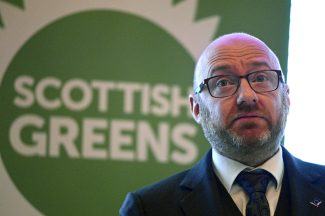Almost all Scots affected by eating disorders would be negatively impacted by introducing calorie labelling on menus, a survey has found.
Research, carried out by eating disorder charity Beat, found adding the information next to food items in Scotland would increase feelings of fear and guilt.
Results found 95% of those impacted by eating disorders believed the policy, being considered by the Scottish Government, would harm them and opposed its introduction.
Respondents to the survey said it could encourage restrictive eating and make recovery more difficult for those with eating disorders.
The survey comes as the Government considers following in the footsteps of England, where calorie counts to menus were introducted in April in a bid to “help consumers to make healthier decisions”.
Scottish ministers have asked for the public’s view on the proposed plans, which would see calorie labelling become mandatory in food outlets such as businesses, takeaways, restaurants and hospitals in a bid to tackle obesity.
Beat has called on the Scottish Government to avoid introducing the plans in a bid to protect Scots living with an eating disorder.
Elsie, not her real name, said it took her years to “unlearn” calorie counting after developing an eating disorder.
“To have it displayed so openly, to potentially hear friends discuss it right in front of me, would be very triggering and harmful,” she said.
Over half of survey respondents felt that if legislation was introduced in Scotland, they would go out to eat less frequently.
One respondent said: “Many chain restaurants have already added calories to their menus. I have had to stop going to these places as I’m concerned that I will relapse.”
Respondents said eating meals out is an important stage of eating disorder recovery.
An occupational therapist who responded to Beat’s survey said: “An important part of my role in supporting people’s recovery is reintroducing and normalising eating out.
“The introduction of calorie labelling would make this incredibly important work even more challenging at such a crucial stage of recovery.”
When asked for alternatives to calories on menus, some survey respondents suggested the introduction of optional menus or QR codes with calories included, but that menus without calories should be the default.
Tom Quinn, Beat’s director of external affairs said: “Including calories on menus can be extremely harmful for those with eating disorders. We know that it can increase feelings of anxiety and distress and worsen existing eating disorder behaviours, which can make people more unwell and recovery more difficult.
“We are also hearing from people who have been in recovery for a long period of time who are distressed about the change proposed legislation would bring, and who are beginning to avoid eating out.
“Demand for eating disorder support has skyrocketed during the pandemic, with many people experiencing heightened distress, anxiety and isolation over the past two years. Between April 2021 and March 2022, Beat provided over 300% more support sessions to people in Scotland in comparison to pre-pandemic levels.
“We are already seeing the damage caused to people affected by eating disorders in England, where calorie labelling legislation became law in April.
“The Scottish Government must protect people affected by eating disorders by avoiding making calorie labelling on menus mandatory across the nation.
“This should include taking an evidence-based, inclusive approach with health policies and involving eating disorder clinicians and experts by experience at every stage of the process.’
Dr Stephen Anderson, consultant psychiatrist in eating disorders added: “There is no good evidence that this kind of calorie labelling is effective in reducing obesity. We also hear from people with eating disorders that this would have a detrimental effect on their eating disorder. Calories are one aspect of nutritional information but on its own this figure is not particularly helpful.
“Suggesting that people need a specific number of calories does not take into account the individual’s physiology, gender, race and activity. This could be particularly harmful for children and young people where limiting calorie and nutritional intake can have significant impacts on development.
“A wider public health initiative looking at social and economic determinants of obesity and improving the population’s nutrition is likely to be more beneficial than listing calorie content on menus.”
A Scottish Government spokesperson said: “We take eating disorders seriously and will fully consider all consultation responses in relation to them.
“We recognise that this is an opportunity to identify potential unintended consequences, and any necessary mitigation measures, should mandatory calorie labelling be introduced.
“The consultation remains open until July 1 and we would encourage all those with an interest to take part and share their views.”
Follow STV News on WhatsApp
Scan the QR code on your mobile device for all the latest news from around the country
























